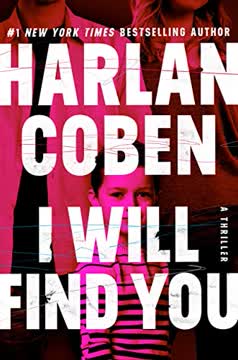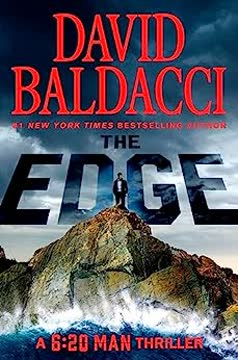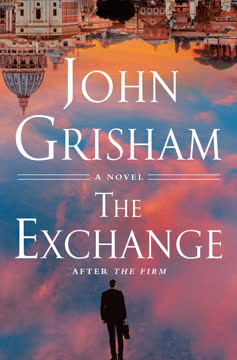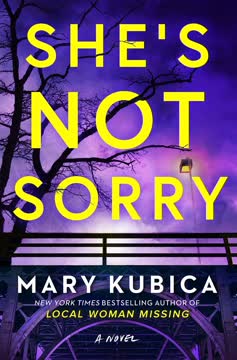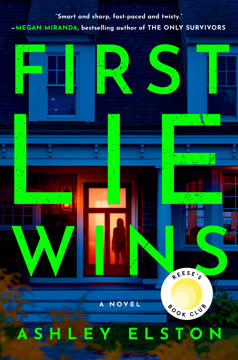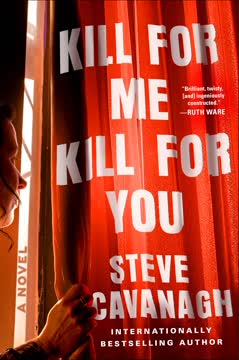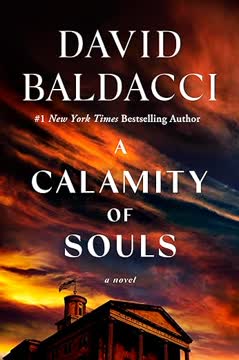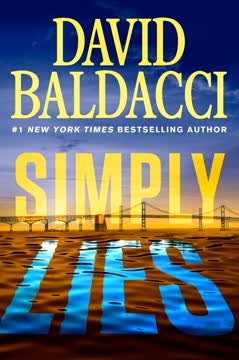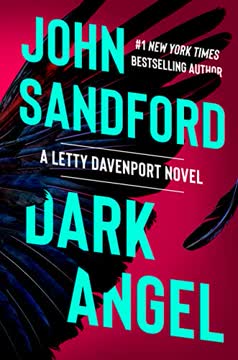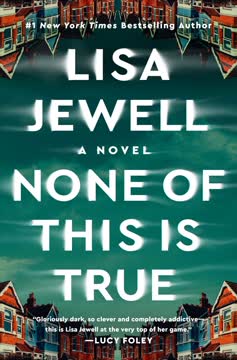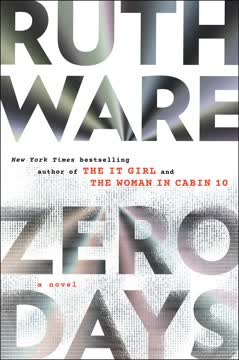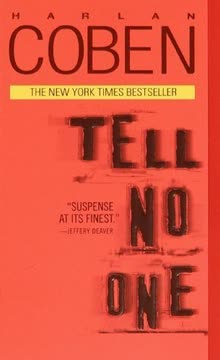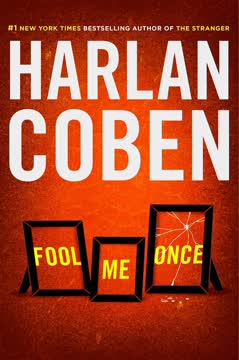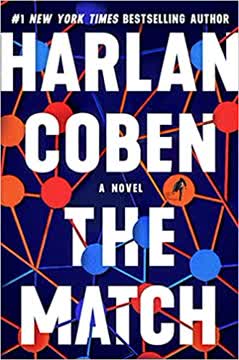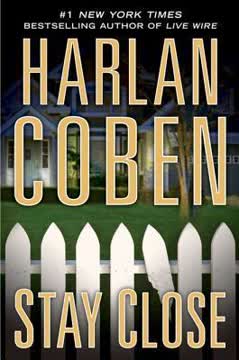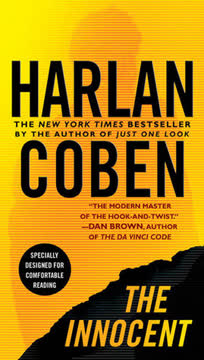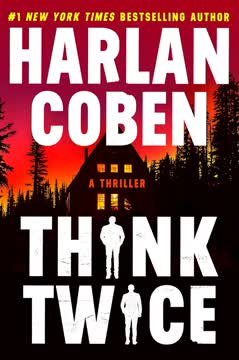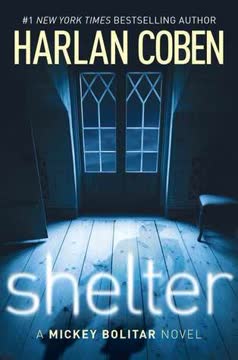Plot Summary
Prisoner of Grief
David Burroughs, once a loving father, is five years into a life sentence for the murder of his three-year-old son, Matthew. He is emotionally numb, wracked with guilt, and has cut himself off from the world, convinced that nothing can redeem him. The world believes he is a child killer, and even he sometimes doubts his own innocence, haunted by blackouts and the possibility of a sleepwalking crime. His marriage to Cheryl has ended, his family is shattered, and he has no hope—until a single, unexpected visitor arrives.
A Photo Changes Everything
Rachel, David's former sister-in-law, visits him in prison for the first time. She brings a photograph taken at an amusement park, showing a boy in the background who looks exactly like Matthew would at age eight, complete with a distinctive birthmark. Rachel's investigation, including age-progression software, suggests the boy could be Matthew. This revelation reignites David's will to live and sets him on a desperate quest to find out the truth about his son.
The Impossible Visitor
David and Rachel debate the meaning of the photograph. Rachel confesses she hasn't told Cheryl, David's ex-wife, fearing to destroy her fragile new life with false hope. David realizes that if the boy is alive, the real killer is still out there—and that any public investigation could endanger Matthew. He resolves to escape prison, enlisting the help of his godfather, Warden Philip Mackenzie, and his childhood friend, Adam.
The Escape Plan
With mounting threats inside prison—including a violent attack and a guard's attempt on his life—David's allies orchestrate a daring escape. Disguised as a police officer, David flees with Philip's help, staging a hostage scenario to buy time. The plan is nearly foiled, but David manages to slip away, setting off a massive manhunt. He contacts Rachel, and together they begin to chase the only lead they have: the mysterious boy in the photograph.
Prison Violence and Alliances
Inside prison, David faces threats from both inmates and corrupt guards. A notorious cannibal serial killer, Ross Sumner, tries to provoke and later kill him, while a guard named Curly is blackmailed into attempting David's murder. The violence and betrayals underscore the danger David faces, both inside and outside prison, and the lengths to which powerful people will go to keep the truth buried.
Family Ties and Old Debts
As David flees, the narrative explores the deep bonds and betrayals among his family and friends. Warden Philip risks everything for David, motivated by loyalty to David's dying father, Lenny. The story also delves into the criminal underworld of Revere, Massachusetts, where David seeks answers from childhood friend Eddie and the local mob, suspecting their involvement in the cover-up.
The Photograph's Truth
David tracks down Hilde Winslow, the key witness who testified to seeing him bury the murder weapon. Under duress, Hilde confesses she lied on the stand, blackmailed by a mobster with a white forelock—Skunk Kyle—who threatened her family. This revelation confirms David's suspicion that he was framed, but the motive and mastermind remain elusive.
The Attempted Murder
As David closes in on the truth, he is betrayed by Skunk Kyle and nearly handed over to the police. Instead, he is abducted and flown to Florida to meet Nicky Fisher, the retired mob boss. Nicky reveals that he orchestrated the false testimony as payback against David's father, but insists he had nothing to do with Matthew's disappearance. Nicky, moved by David's conviction, lets him go, signaling a shift in the underworld's stance.
The Great Prison Break
David's escape triggers a massive law enforcement response, led by FBI agents Max Bernstein and Sarah Jablonski. They piece together the connections between David, Rachel, and the photograph, but are always a step behind. Rachel, now a fugitive herself, uses her investigative skills to help David, risking everything for her nephew.
On the Run
David and Rachel follow the trail of the photograph, discovering it was taken at a corporate event for the Payne family's conglomerate. They realize the boy is being raised as Theo Payne, the secret son of Hayden Payne, a wealthy and disturbed heir. The investigation reveals a web of lies, including a fertility clinic mix-up and a cover-up involving powerful elites.
The Hunt Begins
Max and Sarah, suspicious of the official story, begin to question the original investigation. DNA tests reveal that the murdered boy was not David's biological son, deepening the mystery. Meanwhile, the Paynes, led by the ruthless matriarch Gertrude "Pixie" Payne, prepare to eliminate any threats to their secret.
The Lying Witness
David confronts the mob, learning that his father once planted evidence to convict a mobster's son, and that the mob's interference in his case was meant to balance the scales of justice. The mob, realizing David's innocence, withdraws their opposition, and Nicky Fisher hints at future retribution against the Paynes.
The Mob Connection
The story explores the complex morality of the mob, contrasting their code of not harming children with the Paynes' willingness to do anything to protect their legacy. Nicky Fisher's decision to let David go and his later promise of justice for the Paynes add a layer of poetic justice to the narrative.
Rachel's Secret
Rachel confesses her role in helping Cheryl hide her fertility clinic visit, a secret that contributed to the unraveling of David and Cheryl's marriage. Her guilt over past actions, including a journalistic scandal that led to a friend's suicide, parallels the novel's themes of truth, lies, and the cost of secrets.
Hayden's Obsession
Hayden Payne, obsessed with Rachel and desperate for a family, manipulates the fertility clinic to use his sperm for Cheryl's insemination. When he learns the truth, he orchestrates the kidnapping of Matthew, replacing him with a terminally ill orphan to fake Matthew's death. Hayden raises Matthew as his own, with the help of his grandmother Pixie, who covers up the crime to protect the family.
The Truth About Matthew
David and Rachel confront Hayden at the Payne estate, armed with evidence and determination. Hayden admits to the crime, but insists he did it out of love and a sense of destiny. Pixie, the true mastermind, reveals she falsified the paternity test to keep Hayden from returning Matthew. The police arrive, and in the ensuing chaos, David is shot but survives.
The Final Confrontation
David is reunited with Matthew, who recognizes him as his father. The Paynes' power and wealth shield them from prosecution, but the mob's promise of retribution hangs over them. David is exonerated, and the family begins to heal. Rachel and David find solace in each other, and Matthew starts a new life, free from the lies that once defined him.
Aftermath and Redemption
Eight months later, David attends his father's funeral, surrounded by family and friends. He and Cheryl share custody of Matthew, and Rachel has become his partner. The wounds of the past linger, but there is hope for the future. The story ends with a sense of hard-won peace, as David reflects on the power of love, the resilience of children, and the possibility of redemption.
Characters
David Burroughs
David is a man broken by grief and guilt, imprisoned for a crime he did not commit. His psychological journey is one of numbness, self-doubt, and eventual awakening when hope is rekindled by the possibility that his son is alive. His relationships—with Cheryl, Rachel, his father, and his friends—are marked by loyalty, betrayal, and a desperate need for redemption. David's development is driven by his unwavering love for Matthew and his willingness to risk everything for the truth.
Rachel Anderson
Rachel is David's former sister-in-law and the catalyst for the story's events. Haunted by her own past mistakes, including a journalistic scandal, she seeks redemption by helping David. Her investigative skills, courage, and emotional intelligence make her an indispensable ally. Rachel's relationship with David evolves from familial loyalty to deep partnership, and her actions are motivated by love for her nephew and a desire to right past wrongs.
Cheryl Burroughs (Dreason)
Cheryl is David's ex-wife and Matthew's mother. She is torn between grief, guilt, and the need to move on. Her secret visit to the fertility clinic and subsequent lies contribute to the unraveling of her marriage and the tragedy that follows. Cheryl's psychological complexity is revealed in her interactions with David and Rachel, and her eventual acceptance of the truth is both painful and liberating.
Hayden Payne
Hayden is the wealthy heir who orchestrates Matthew's kidnapping, driven by an unhealthy fixation on Rachel and a desire for a family. His actions are rationalized by entitlement and a warped sense of destiny. Hayden's psychological profile is that of a narcissist, capable of both charm and cruelty, and his downfall is marked by denial and self-justification.
Gertrude "Pixie" Payne
Pixie is the true mastermind behind the Payne family's crimes. Her primary motivation is the preservation of the family legacy, and she is willing to do anything—including murder and deception—to protect it. Pixie's psychological strength lies in her cold pragmatism and ability to manipulate those around her, but her actions ultimately sow the seeds of the family's undoing.
Philip Mackenzie
Philip is torn between his duty as a prison warden and his loyalty to David and Lenny. His decision to help David escape is driven by love, guilt, and a sense of justice. Philip's character embodies the tension between law and morality, and his actions have lasting consequences for himself and his family.
Adam Mackenzie
Adam is David's lifelong friend and Philip's son. He risks his career and freedom to help David, motivated by loyalty and a belief in his friend's innocence. Adam's role is that of the loyal sidekick, providing emotional and practical support throughout the escape and investigation.
Nicky Fisher
Nicky represents the underworld's complex morality. He orchestrates the false testimony against David as payback for his own son's imprisonment but ultimately recognizes David's innocence and lets him go. Nicky's character is a study in loyalty, vengeance, and the limits of criminal honor.
Skunk Kyle
Skunk is the mobster who blackmails Hilde Winslow into lying on the stand. His presence is a constant threat, embodying the dangers of the criminal world and the ease with which innocent lives can be destroyed by those in power.
Max Bernstein and Sarah Jablonski
Max and Sarah lead the manhunt for David, balancing their duty to the law with growing doubts about his guilt. Max, in particular, is drawn to the possibility of David's innocence, while Sarah remains committed to procedure. Their partnership reflects the broader themes of justice, truth, and the fallibility of institutions.
Plot Devices
False Conviction and Unreliable Memory
The novel's central device is David's conviction for a crime he cannot remember, complicated by blackouts and sleepwalking. This creates ambiguity and tension, forcing both David and the reader to question the nature of truth and guilt.
The Photograph as Catalyst
The photograph of a boy who looks like Matthew serves as the inciting incident, propelling the narrative forward. It functions as both a literal clue and a symbol of the power of hope and the dangers of wishful thinking.
Layered Mysteries and Red Herrings
The story employs a classic whodunit structure, with false leads, unreliable witnesses, and a web of secrets. The involvement of the mob, the fertility clinic, and the Payne family creates a complex tapestry of motives and opportunities, keeping the reader guessing until the end.
The Power of Wealth and Corruption
The Payne family's ability to manipulate the system, cover up crimes, and evade justice highlights the theme of power and its corrupting influence. The contrast between the mob's code and the Paynes' amorality underscores the novel's moral ambiguity.
Redemption and the Cost of Secrets
The narrative structure is cyclical, beginning and ending with David's grief and isolation, but ultimately moving toward redemption through the uncovering of secrets, the restoration of family, and the possibility of new beginnings.
Analysis
I Will Find You is a high-octane, emotionally charged thriller that explores the devastating consequences of lies, secrets, and the abuse of power. At its core, the novel is about a father's relentless love and the lengths to which he will go to save his child and reclaim his life. Harlan Coben weaves a complex narrative that interrogates the fallibility of memory, the corrosive effects of guilt, and the moral gray areas between justice and vengeance. The story critiques the ways in which wealth and privilege can subvert the law, while also examining the redemptive power of truth, loyalty, and love. Ultimately, the novel suggests that healing is possible, but only when we confront the past, accept our flaws, and fight for those we love—no matter the cost.
Last updated:
FAQ
Synopsis & Basic Details
What is I Will Find You about?
- A Father's Desperate Quest: I Will Find You follows David Burroughs, a man serving a life sentence for the murder of his three-year-old son, Matthew. Believing himself innocent but resigned to his fate, David's world is shattered and then reignited when his former sister-in-law, Rachel, presents him with a photograph suggesting Matthew might still be alive.
- Unraveling a Deep Conspiracy: Driven by this impossible hope, David orchestrates a daring escape from a maximum-security prison. He embarks on a relentless, high-stakes journey to uncover the truth behind Matthew's disappearance, navigating a treacherous web of family secrets, mob connections, and the corrupting influence of immense wealth.
- The Search for Redemption: Beyond a thrilling manhunt, the novel delves into themes of grief, betrayal, and the enduring power of a parent's love. David's quest for his son becomes a desperate search for personal redemption, forcing him to confront his past, challenge his own memories, and ultimately redefine what it means to be a father.
Why should I read I Will Find You?
- Masterful Pacing & Suspense: Harlan Coben delivers a relentless, high-octane thriller that grabs you from the first page and doesn't let go. The narrative is a masterclass in suspense, with constant twists and turns that keep readers guessing, making it an ideal choice for fans of intricate mysteries and fast-paced action.
- Deep Emotional Resonance: Beneath the thrilling plot lies a profoundly emotional core. The novel explores the devastating impact of loss, the complexities of guilt, and the fierce, unwavering love of a parent. David's journey from numb despair to desperate hope offers a compelling psychological portrait that resonates long after the final page.
- Thought-Provoking Themes: Beyond entertainment, I Will Find You delves into the corrupting influence of power and privilege, the fallibility of memory, and the subjective nature of justice. It challenges readers to consider how far they would go for family and what constitutes true redemption, offering a rich layer of thematic depth.
What is the background of I Will Find You?
- Contemporary American Setting: The story is primarily set in the northeastern United States, moving from the stark confines of Briggs Penitentiary in Maine to the bustling streets of New York City, the suburban sprawl of New Jersey, and the affluent enclaves of Newport, Rhode Island. This diverse geographical backdrop underscores the wide reach of the conspiracy.
- Exploration of Privilege & Justice: The narrative implicitly critiques the American justice system and the societal impact of extreme wealth. It highlights how money and influence can bend laws, silence witnesses, and obscure truth, contrasting this with the struggles of ordinary individuals seeking justice.
- Psychological Realism: While a work of fiction, the novel grounds its fantastical premise in psychological realism, particularly David's initial numbness and self-doubt, and the complex motivations of characters driven by grief, loyalty, or a warped sense of entitlement. The exploration of unreliable memory and the human capacity for self-deception adds a layer of depth.
What are the most memorable quotes in I Will Find You?
- "I am serving the fifth year of a life sentence for murdering my own child. Spoiler alert: I didn't do it.": This opening line immediately establishes David's voice, his dark humor, and the central mystery, hooking the reader with its audacious claim of innocence. It sets the stage for a narrative that challenges perceptions of guilt and truth.
- "Redemption isn't possible in this case. Or at least, that was what I believed right up until the moment that the guard, a particularly eccentric case we call Curly, comes to my cell and says, 'Visitor.'": This quote marks the pivotal turning point for David, signifying his shift from resigned despair to a renewed, albeit terrifying, hope. It encapsulates the novel's core theme of unexpected chances for redemption.
- "Fathers and sons. We are all the same. I would have done anything to keep Mikey out of prison, even though I knew he was guilty. Your father was the same.": Spoken by mob boss Nicky Fisher, this line distills a central theme of the novel: the fierce, often morally ambiguous, lengths parents will go to protect their children. It highlights the parallel between David's father and Nicky, blurring the lines between "good" and "bad" and emphasizing the universal drive of parental love.
What writing style, narrative choices, and literary techniques does Harlan Coben use?
- First-Person Unreliable Narration: The story is primarily told from David Burroughs's perspective, offering intimate access to his thoughts and emotional state. This choice initially creates an unreliable narrator, as David himself doubts his innocence due to blackouts, forcing the reader to question his memories and the "truth" presented.
- Propulsive Pacing and Short Chapters: Coben employs a signature fast-paced, cinematic style with short, cliffhanger-ending chapters. This keeps the narrative momentum high, driving the reader forward through constant revelations and escalating stakes, making the book difficult to put down.
- Layered Mystery and Misdirection: The author masterfully constructs a complex mystery with multiple red herrings and shifting suspects. He uses narrative misdirection, introducing seemingly unrelated plotlines (like Rachel's past scandal or the mob's history) that eventually converge, revealing a meticulously planned, multi-faceted conspiracy.
Hidden Details & Subtle Connections
What are some minor details that add significant meaning?
- Curly's Gloves and Demeanor: When Curly comes to take David to the infirmary (Chapter 7), David notes Curly's ashen face, glistening eyes, quivering lip, and the black latex gloves. These subtle details immediately signal that Curly is not acting under normal prison protocol and is deeply distressed, foreshadowing his coerced attempt on David's life.
- Philip Mackenzie's Visit to Lenny: Warden Mackenzie's seemingly personal visit to David's dying father, Lenny (Chapter 5), is more than just a gesture of friendship. It's a moment where Philip seeks moral guidance and justification for his impending actions, revealing his deep internal conflict and the profound loyalty that drives him to break David out.
- The "Chicken Extinction" Argument: Gertrude "Pixie" Payne's philosophical musings on the "chicken extinction question" (Chapter 35) subtly reveal her ruthless pragmatism and capacity for self-justification. It highlights her belief that the greater good (preserving the Payne legacy) outweighs individual suffering, even if it means sacrificing innocent lives.
What are some subtle foreshadowing and callbacks?
- David's Sleepwalking History: Early in the novel (Chapter 1), David mentions his history of sleepwalking and "mental health issues" as a potential defense his lawyer considered. This detail subtly foreshadows Cheryl's later confession (Chapter 32) that she believed David's blackouts and sleepwalking, exacerbated by her betrayal, led him to unconsciously harm Matthew.
- Hayden's Past Violence: Rachel's recollection of Hayden's brutal attack on Evan Tyler in college (Chapter 29) subtly foreshadows his capacity for extreme violence and his warped sense of "saving" those he cares about. It hints at the dark side beneath his privileged exterior, preparing the reader for his role in Matthew's kidnapping.
- The "White Forelock" Man: Hilde Winslow's description of the man who blackmailed her, noting his "poliosis" or "white forelock" (Chapter 31), is a specific detail that immediately connects him to Skunk Kyle, a character from David's past. This subtle callback reinforces the idea that the conspiracy is deeply rooted in David's hometown and its criminal underworld.
What are some unexpected character connections?
- Hayden Payne's Obsession with Rachel: The revelation that Hayden Payne was deeply in love with Rachel Anderson in college, and that his actions were partly driven by this unrequited affection (Chapter 29, 37), adds an unexpected layer of personal motivation to the grand conspiracy. It transforms his villainy from pure greed to a twisted, obsessive desire for family and connection.
- Cheryl's Fertility Clinic Deception: The connection between Cheryl's secret visit to the Berg Reproductive Institute and Hayden Payne's family conglomerate (Chapter 25) is a crucial, unexpected link. It reveals that the very institution Cheryl used to hide her fertility struggles was owned by the man who would ultimately steal her child, highlighting the insidious reach of the Payne family's influence.
- Rachel's Role in Cheryl's Deception: Rachel's confession that she facilitated Cheryl's secret fertility clinic visit by using her own ID (Chapter 31) is a surprising betrayal that complicates her relationship with David. It reveals her own past moral compromises and adds depth to her motivation for helping David, as she seeks to atone for her own role in the initial marital breakdown.
Who are the most significant supporting characters?
- Ted "Curly" Weston: More than just a corrupt guard, Ted Weston's character (Chapter 6, 10, 21) highlights the pervasive nature of financial desperation and the ease with which seemingly ordinary people can be coerced into morally compromising acts. His internal conflict and eventual betrayal by Ross Sumner underscore the novel's critique of systemic corruption.
- Eddie Grilton: David's childhood friend, Eddie (Chapter 23), serves as a vital link to David's past and the local underworld. His unwavering loyalty and willingness to help David, despite the immense risks, provide a grounding force and a reminder of genuine friendship amidst the widespread deception.
- Catherine Tullo: Though never appearing directly, Catherine Tullo (Chapter 12, 20) is a significant character whose tragic suicide, indirectly caused by Rachel's journalistic zeal, fuels Rachel's deep-seated guilt. Her story provides a crucial parallel to the themes of unintended consequences and the destructive power of secrets, motivating Rachel's desperate need for redemption.
Psychological, Emotional, & Relational Analysis
What are some unspoken motivations of the characters?
- Cheryl's Self-Blame: Cheryl's intense emotional breakdown and confession (Chapter 32) reveal her unspoken motivation: she believes she is directly responsible for Matthew's "murder." Her lie about the donor sperm, and David's subsequent unraveling, led her to conclude that her actions drove him to an unconscious act of violence, a profound and hidden burden of guilt.
- Pixie's Legacy Preservation: Gertrude "Pixie" Payne's ruthless actions are driven by an unspoken, almost primal, need to protect the Payne family legacy at all costs. Her willingness to falsify paternity tests and orchestrate cover-ups (Chapter 37) stems from a deep-seated belief that the family's power and reputation are paramount, even if it means sacrificing individual lives or moral integrity.
- Hayden's Twisted Sense of Destiny: Hayden Payne's elaborate scheme to kidnap Matthew and raise him as his own is fueled by an unspoken, narcissistic belief in a "destiny" to have a child with Rachel. His manipulation of the fertility clinic and the subsequent cover-up (Chapter 34) are rationalized by a warped sense of entitlement and a desire to fulfill his own twisted vision of family.
What psychological complexities do the characters exhibit?
- David's Numbness and Reawakening: David Burroughs initially exhibits profound psychological numbness, a coping mechanism for his grief and perceived guilt. His reawakening upon seeing Matthew's photo (Chapter 2) is a complex shift from apathy to fierce, almost manic, determination, highlighting the human capacity for resilience and the transformative power of hope.
- Ross Sumner's "Intellectual" Sadism: Ross Sumner (Chapter 4) is a chilling portrayal of psychopathy, exhibiting a detached, "intellectual" curiosity about human suffering. His philosophical ramblings about "strangers as life's props" and his desire to understand David's "barbaric" act reveal a profound lack of empathy masked by a veneer of education, making him a truly disturbing character.
- Rachel's Guilt and Atonement: Rachel Anderson's character is deeply complex, driven by a profound sense of guilt over her past journalistic scandal and Catherine Tullo's suicide (Chapter 12, 20). Her relentless pursuit of the truth for David is not just loyalty but a desperate attempt at atonement, blurring the lines between selflessness and self-redemption.
What are the major emotional turning points?
- The Photograph as Catalyst: The moment Rachel shows David the amusement park photograph (Chapter 2) is the primary emotional turning point. It shatters David's five-year-long numbness, replacing his resignation with a desperate, almost painful, surge of hope and a renewed will to live and fight.
- Hilde Winslow's Confession: Hilde Winslow's admission that she lied on the stand (Chapter 31), coerced by Skunk Kyle, is a crucial emotional turning point for David. It validates his long-held, yet doubted, belief in his innocence, transforming his quest from a desperate hope into a righteous pursuit of justice.
- Cheryl's Breakdown and Confession: Cheryl's tearful confession about the donor sperm and her belief that her actions led to Matthew's "murder" (Chapter 32) is a devastating emotional climax. It reveals the hidden burden of guilt she carried, adding a layer of tragic irony to David's suffering and highlighting the profound impact of their shared trauma.
How do relationship dynamics evolve?
- David and Rachel: From In-Laws to Partners: Their relationship evolves from a distant familial connection to a deep, trusting partnership. Rachel's initial visit, driven by a mix of curiosity and loyalty, transforms into a full commitment to David's cause, culminating in a romantic relationship (Eight Months Later), built on shared trauma and a mutual quest for truth.
- David and Cheryl: From Shattered Marriage to Shared Parenthood: Their dynamic shifts from a broken, guilt-ridden ex-marriage to a fragile, yet hopeful, co-parenting relationship. Cheryl's initial belief in David's guilt and her subsequent self-blame are replaced by a shared understanding and a renewed bond over their son, Matthew, symbolizing healing and forgiveness.
- Philip Mackenzie's Loyalty to Lenny and David: Philip's relationship with David is deeply rooted in his lifelong friendship and loyalty to David's dying father, Lenny. His decision to risk his career and freedom to help David escape (Chapter 9) is a testament to the enduring power of these bonds, showcasing how personal loyalty can transcend professional duty.
Interpretation & Debate
Which parts of the story remain ambiguous or open-ended?
- The Paynes' Ultimate Fate: While David is exonerated and Matthew is returned, the novel leaves the ultimate legal consequences for Gertrude "Pixie" and Hayden Payne ambiguous. Nicky Fisher's promise of "good for me, bad for the Paynes" (Eight Months Later) suggests extra-legal retribution, leaving readers to debate whether true justice is served outside the formal system.
- Matthew's Long-Term Psychological Impact: The story acknowledges Matthew's nightmares and resilience (Eight Months Later) but leaves the full extent of his long-term psychological effects open-ended. Readers are left to ponder how a child raised under such deceptive circumstances will truly integrate his past and reconcile his two "fathers."
- The Nature of "Justice": The novel consistently questions what constitutes true justice. Is it legal exoneration, personal redemption, or extra-legal vengeance? The ending suggests a blend of these, leaving the reader to interpret whether the resolution is truly satisfying or merely a pragmatic outcome in a morally complex world.
What are some debatable, controversial scenes or moments in I Will Find You?
- David's Use of Violence: David's willingness to use violence, including hitting Hilde Winslow with a gun barrel (Chapter 19) and assaulting a police officer (Chapter 19), is highly debatable. While presented as acts of desperation to find his son, these moments challenge the reader's sympathy for David and raise questions about the morality of his methods.
- Pixie's Justification for Deception: Gertrude "Pixie" Payne's cold, pragmatic justifications for her actions, particularly her "chicken extinction" argument (Chapter 35), are controversial. Her belief that protecting the family legacy outweighs individual suffering forces readers to confront uncomfortable truths about privilege and the lengths people will go to maintain power.
- Rachel's Past Actions and Guilt: Rachel's role in Catherine Tullo's suicide (Chapter 12, 20) and her deception regarding Cheryl's fertility clinic visit (Chapter 31) are highly controversial. These moments highlight the moral ambiguities of her character, prompting debate about whether her later actions are true redemption or merely self-serving attempts to alleviate her own guilt.
I Will Find You Ending Explained: How It Ends & What It Means
- Matthew's Return and David's Exoneration: The novel culminates in David's dramatic confrontation with Hayden and Pixie Payne at their estate, where Matthew is revealed to be alive and recognizes David as his true father. David is shot but survives, and his innocence is eventually proven, leading to his release from prison and the beginning of shared custody with Cheryl. This signifies a hard-won victory for truth and the enduring bond of family.
- The Elusive Nature of Justice for the Paynes: Despite their elaborate crimes, Hayden and Pixie Payne largely evade legal consequences due to their immense wealth and influence. However, the ending hints at a different form of justice: Nicky Fisher, the mob boss, promises to ensure the Paynes "getting away with it" "can't stand" (Eight Months Later), suggesting that the underworld's code of retribution may deliver what the legal system cannot. This leaves the reader with a nuanced view of justice, where formal and informal systems operate
Review Summary
I Will Find You receives mostly positive reviews for its fast-paced, suspenseful plot about a wrongly convicted father searching for his supposedly dead son. Readers praise Coben's engaging writing style and ability to create tension. Many find the story gripping and hard to put down, despite some unrealistic elements. Critics note formulaic aspects and cartoonish characters, particularly the FBI agents. Overall, reviewers appreciate the thrilling ride and satisfying conclusion, recommending it as an entertaining, if somewhat over-the-top, read.
Similar Books
Download PDF
Download EPUB
.epub digital book format is ideal for reading ebooks on phones, tablets, and e-readers.
